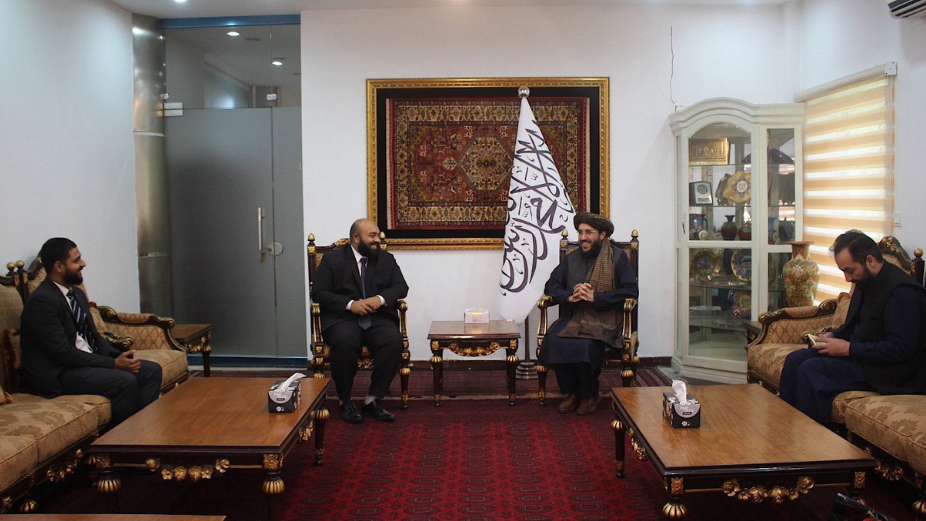
The Government of Maldives has clarified that a recent meeting between its High Commissioner to Pakistan, Mohamed Thoha, and a representative of Afghanistan in Islamabad was not authorised by the Maldivian government. This statement, issued on Sunday, comes after photos emerged of the High Commissioner meeting with Sardar Ahmad Shakeeb, the Taliban’s envoy to Pakistan.
In its official statement, the Maldivian government emphasised that the meeting was unsanctioned, meaning it was not approved in advance by the relevant authorities in Malé. As a result, the government stated that it has taken appropriate action in response, though specific details on these measures were not disclosed.
To explain its stance on the legitimacy of foreign representatives, the Maldivian government referenced the United Nations’ approach. The United Nations General Assembly has a protocol in place to determine which governments are considered legitimate, especially in cases where different groups claim control. The Maldives follows this UN practice, which recognises the Afghan government represented at the United Nations as the official government of Afghanistan, rather than the Taliban administration.
This clarification makes clear that, in the view of the Maldivian government, the High Commissioner’s meeting with a representative of the Taliban does not align with the country’s diplomatic policy.
Former Maldivian Ambassador to the UAE, Mohamed Faisal, voiced criticism of the government’s statement, arguing that it does not reflect established diplomatic practices. He highlighted that ambassadors typically do not require prior permission to meet with other diplomats or officials. According to Faisal, the assertion that the meeting was unsanctioned is inconsistent with standard diplomatic protocol.
Faisal also pointed out that the presence of other diplomats in the images suggests the meeting was conducted in an official capacity, further questioning the government’s stance on the matter.
This incident has stirred a debate on diplomatic protocol, with some arguing that the High Commissioner’s actions were within normal diplomatic boundaries, while others view the meeting as a misalignment with the Maldives’ official position on Afghanistan’s representation.
The Maldivian Foreign Ministry’s response reflects a commitment to following international norms, aligning its diplomatic relations based on recognised global practices. The government reiterated the importance of adhering to established protocols in determining the legitimacy of foreign representatives, in line with the United Nations General Assembly’s precedent.











